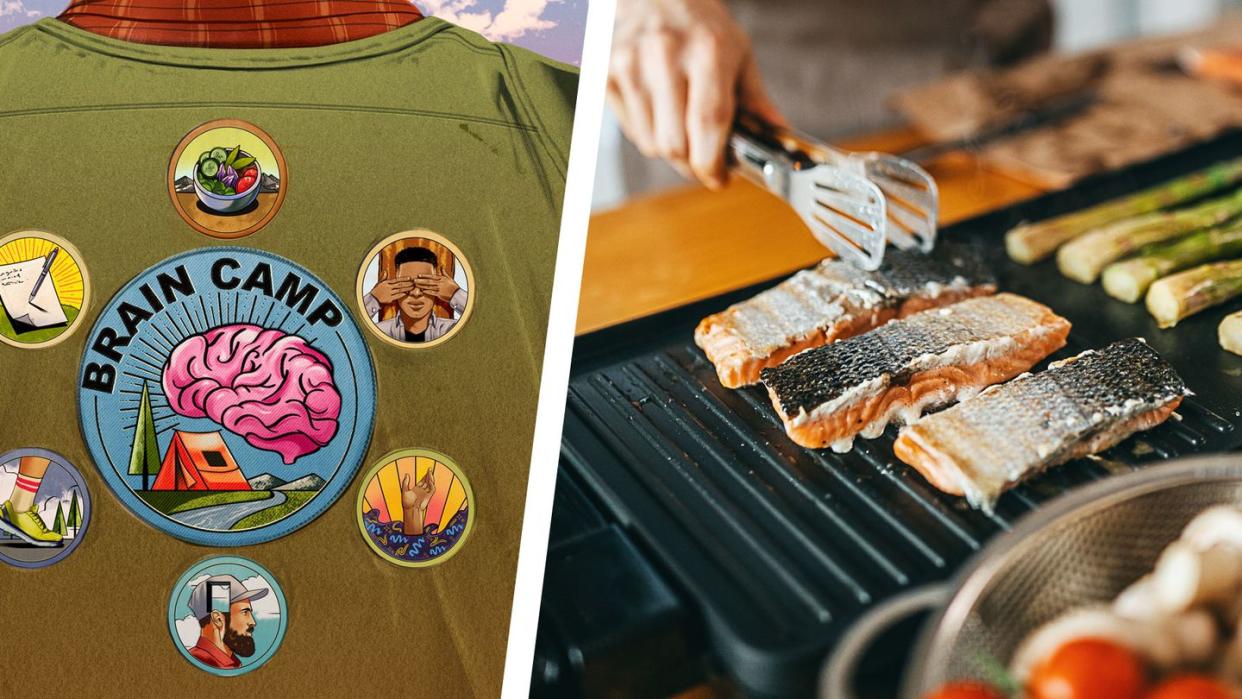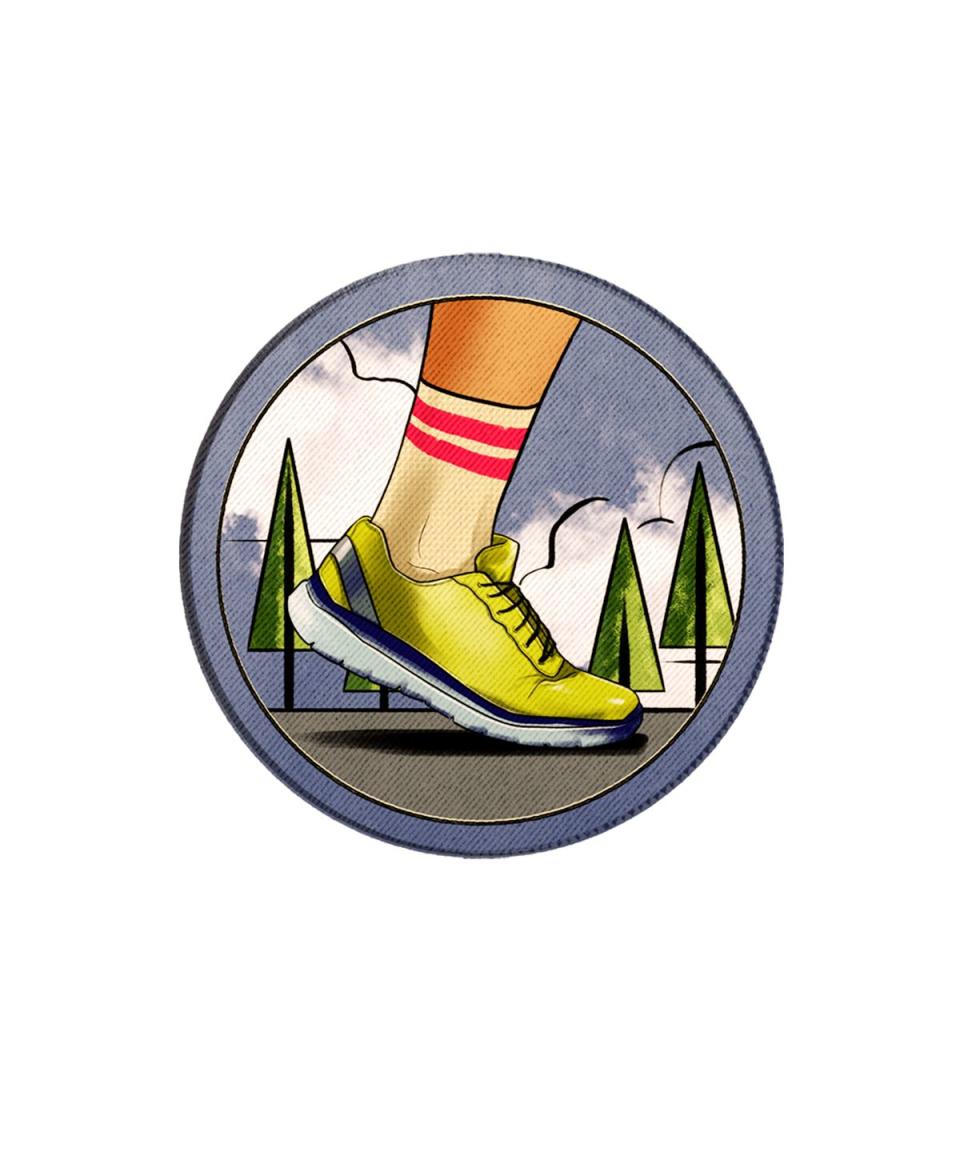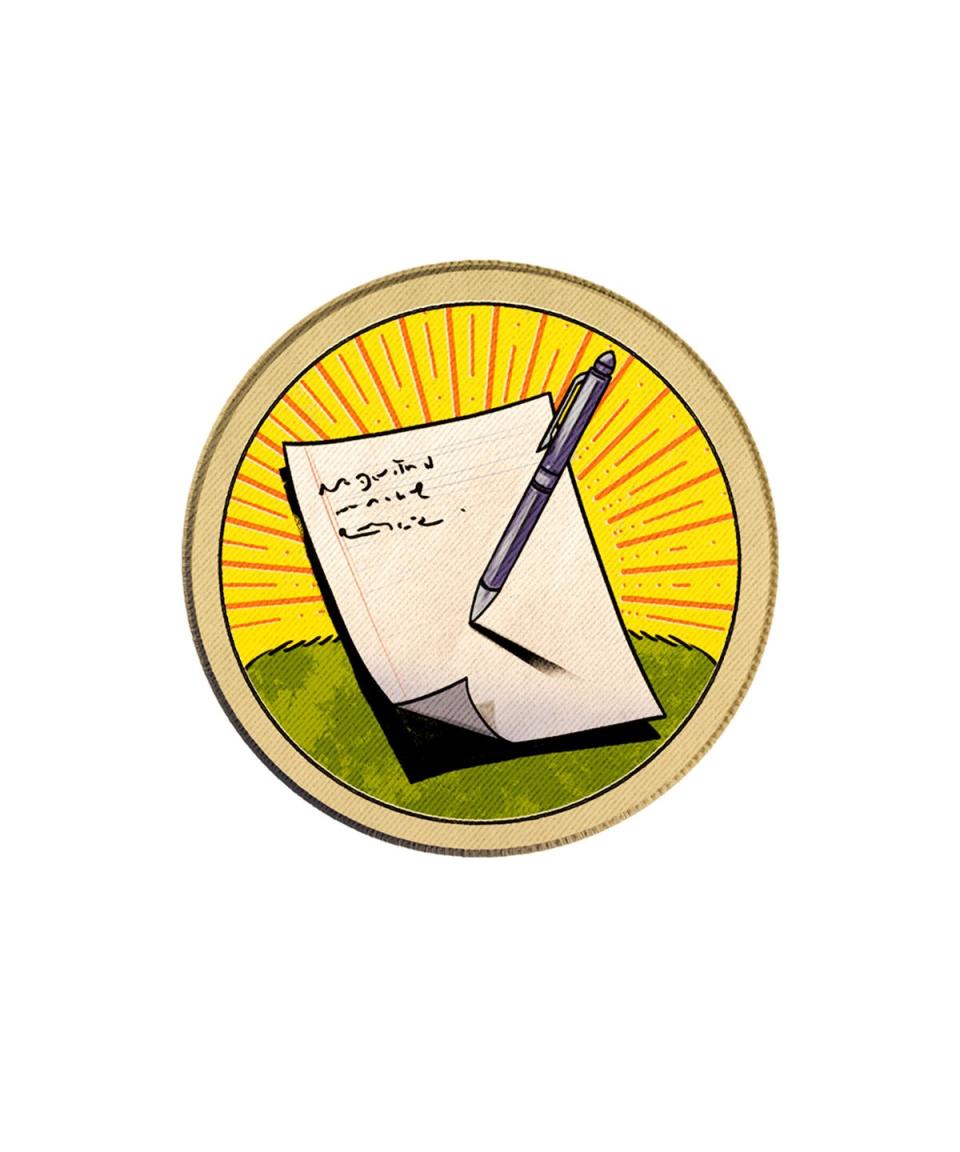What Happens at a 5-Day Camp to Improve Your Brain

It’s hard to know whether to call it dread, foreboding, or brief panic, but it’s a feeling that many of the 24 people I’m sitting in a room with at Canyon Ranch wellness resort know too well.
For me, it’s like the floor has opened up and I’m about to fall through. It’s the feeling you get when you’re grasping for a name, a place, a detail, a fact, and all that’s coming up instead is a very real concern about whether this is the beginning of the end. Whether I’ll be sitting at the Thanksgiving table someday like my mom did, chewing on the edge of a cloth napkin, while across the table, Dad registers a mixture of terror and heartbreak. Because when you’re at the dinner table, you eat, but the plaques and tangles of Alzheimer’s disease do things like disrupt signals in your brain that help you know what’s edible and what’s not. I’m trying not to be there someday. I’m trying not to panic.
I’m in the Boosting Brain Health Immersion program at Canyon Ranch’s Tucson location, learning not just what to do to prevent dementia but also how to optimize everyday thinking. Over five days, I’m reminded of all the ways that what’s good for the body feeds the brain, too. A rolling cast of experts explain how adequate sleep helps the brain do its internal housekeeping. They demo a doable-at-home seared-salmon dinner. We all participate in walking meditations and listening exercises. We do a lot, and that’s kind of the point, says Robert M. Bilder, Ph.D., the neuropsychologist and researcher at UCLA who’s more or less the deep-science guest anchor of Canyon Ranch’s program. When it comes to optimizing brain health, Bilder says, “we go astray by focusing on just one thing.”
In a way, taking care of your brain is so simple that even ChatGPT gets it right: When Bilder asked the bot for “closing remarks for a group of highly intelligent adults who are interested in boosting brain health,” the meat of its reply was “By adopting a healthy lifestyle that includes physical exercise, a balanced diet, stress reduction, social interaction, and mental stimulation, you can take an active role in preserving your brain’s health and cognitive function.”
Note “active role.” Brain researchers have been studying “neuroplasticity,” the ability of your brain to constantly change by making new connections and encoding new neural pathways. Scientists used to think that the number of brain cells you had was important, but now they prize new and multiple neural connections; they’re “what probably enhance new learning and protect existing memory systems from dissolution,” says Bilder.
If you think you’re limited by your genes, think again. “Your genes are your personal software packages that you get to program and reprogram throughout your life based on your choices,” says former surgeon general Richard Carmona, M.D., now the director of health innovation at Canyon Ranch. Your brain can change due to choices including the relationships you have, the air you breathe, the food you eat, and the exercise you do or don’t do.
This organ does so much for you that it makes sense that there’s more than one way to support it. Use these common and not-so-common strategies to level up your brain.
Build Workout Momentum

Physical activity has a major effect on brain health. Movement helps your brain be more “plastic”—you create more dense networks of capillaries to bring blood to brain cells, and brain “trophic” factors (BDNF, IGF, VEGF) are released. These improve connections between brain cells and help you lay down new networks for information to travel on. Consistent exercise may lower your risk of dementia and also improve brain volume, which could otherwise shrink 0.5 percent or more a year after age 40.
“All movement is good,” explains Canyon Ranch’s director of performance science, Mike Siemens. But ideally, he says, aim for “20 to 45 minutes of cardio four to six days a week, and two to three days of strength training a week.” Consistently.
Since nothing snowballs faster than a skipped workout, you need a rescue workout—a shorter, “plan B” workout—to keep your momentum going. Something like this: Warm up for three minutes with whatever movement is handy (walking, cycling). Then alternate between one minute of pushing your heart rate up (go hard) and one minute of recovering (move at a relaxed pace). Do this five times. Finish with two minutes easy and you’re done—and still on track.
Optimize Your Fuel

Getting the best performance from your brain means eating well. “Don’t put cheap gas in the Maserati,” as Dr. Carmona puts it. You want food that will help regulate blood pressure, keep glucose in check, and deliver as many nutrients as possible. Sticking to a healthy dietary pattern of whole foods is more important than zeroing in on specific nutrients. To see what these meals look like in practice, check out the MIND, DASH, and Mediterranean diets; they’re very similar and all good for your brain.
Dump the Trash

Sorting through and clarifying what you’re thinking and feeling can free up space in your head. Gratitude journaling is fine. But if you’re allergic to that sort of thing, Jenny Simon, a mental-health and wellness therapist at Canyon Ranch, recommends a kind of anti-journaling. Just dump out on a piece of paper what’s on your mind. Say what has you gnarled up, miffed, or outraged. Ask questions. Vent. “Barf it out on paper and write until you’re quiet,” Simon says. And then shred it. Just take a few minutes to do it: The act can actually lower inflammation markers in your body and boost your working memory.
Reach Past Synthetic Happiness

There’s a reason we turn to alcohol, junk food, and other substances that don’t help our brains. We’re trying to avoid discomfort and to “amputate parts of our emotional experience,” says Amy Hawthorne, the director of mental health and wellness at Canyon Ranch. There’s no way around feeling uncomfortable sometimes, even though we all look for one. Let yourself feel the discomfort and at the same time aim to keep your brain chemicals in balance with some “happiness neurochemical hacks.” To boost feelings of connection that you get from the hormone oxytocin, try cuddling, holding hands, or giving gifts. To help stabilize moods by increasing serotonin, try spending time in sunlight and nature or devote some time to meditation. To release endorphins that help keep you from feeling numb, consider physical activity, sex, and laughing.
Remember, Forgetting Is Normal

The systems involved in both anxiety and memory formation overlap in the same area of the brain. “The hippocampus is essentially hijacked by anxiety,” Bilder says, which disrupts memory. “Lapses in memory occur all the time, and many times we see there is not a big problem with memory but that people are feeling anxious or worried for other reasons. So the first question when—not if—you feel you are having cognitive lapses is ‘Might I be particularly stressed or distracted right now?’ If anxiety, worry, stress, or distraction does not explain the problems, or if others express they are worried about your memory or thinking, then it may be good to get an objective assessment.” You’ll want one from an actual doctor. “Beware online offerings,” he adds. “The current generation of online assessments are mostly not validated and cannot be trusted to generate useful results.”
Hide. Seek. Play.

At one moment in the program, everyone—even the folks in their 80s—is hiding. Under desks, behind doors. It’s a full-on, unexpectedly competitive game of hide-and-seek. Adam Smith, a spiritual-wellness provider at Canyon Ranch, has put us up to it to make the point that play helps you cope and focus the way a lot of stress-reduction tools like meditation do, but with a sense of lightheartedness. You’re problem solving, moving, laughing. You’re building plasticity without the “burdensome rigidity of being dead serious all the time,” he says. It’s easy not to remember to play. It’s important not to forget.
You Might Also Like

